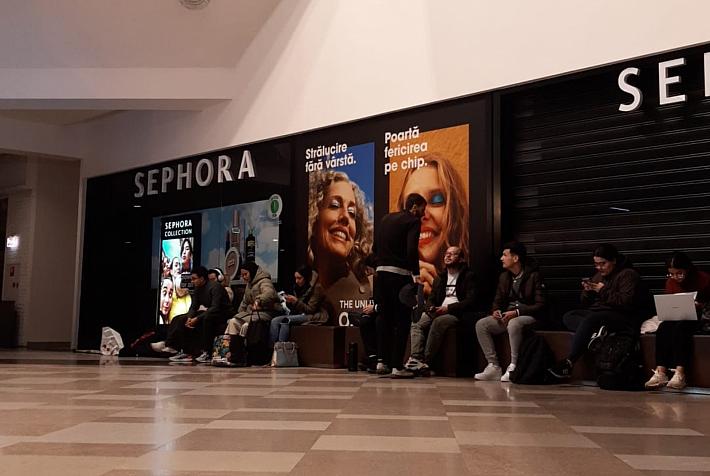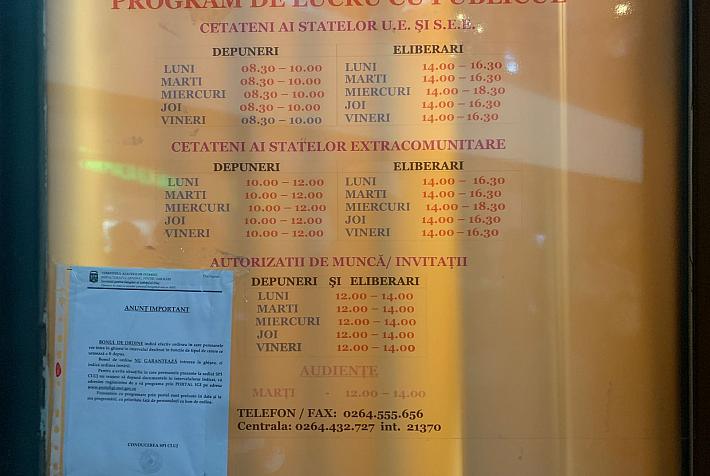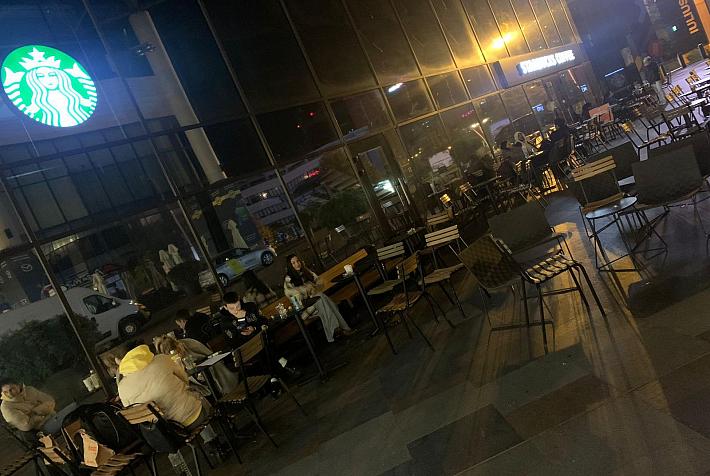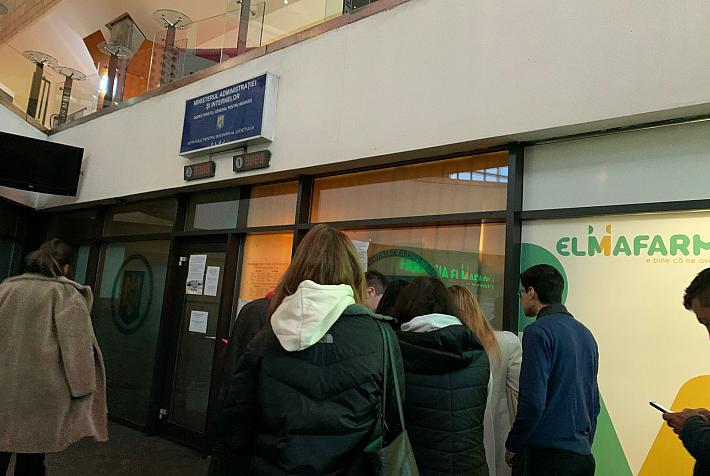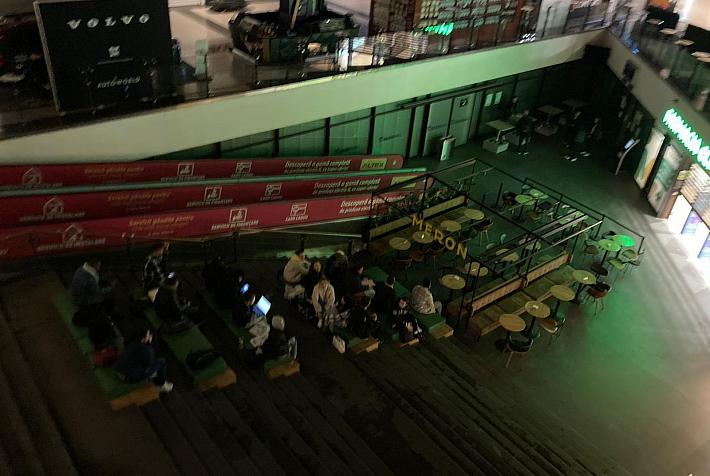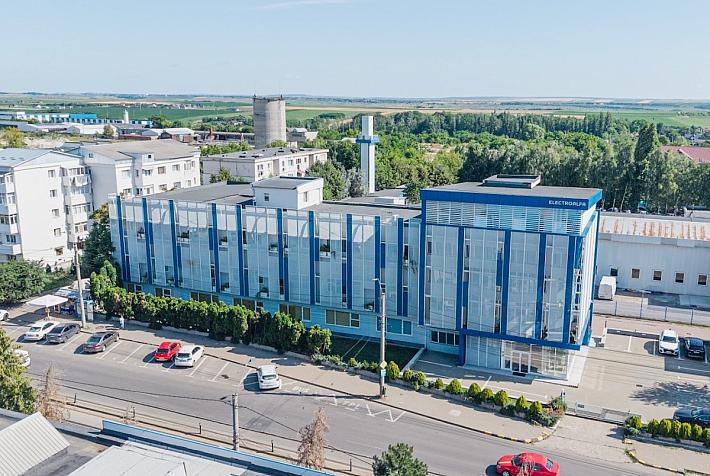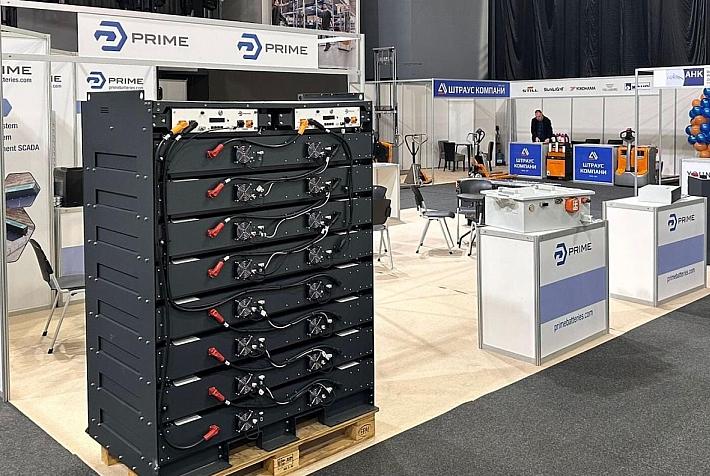Overnight stay on the mall's terrace, nightmarish waiting hours, and lack of personnel: Service at Cluj Immigration Office
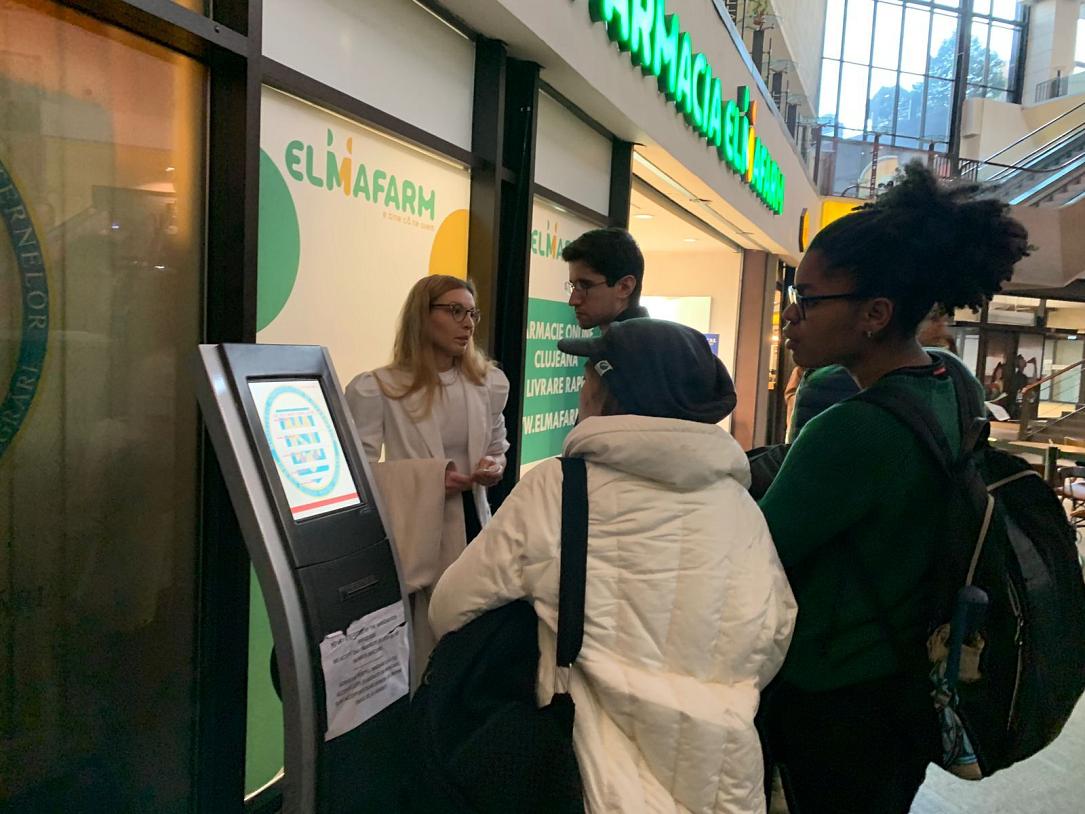
“I came at 18:44 the previous day and I was done at 10:40 in the morning.”
These words are how Daniil Nenakhov, an 18-year-old student from Kazakhstan at Babes-Bolyai University (UBB) in Cluj-Napoca, describes his experience obtaining his residence permit at the Cluj Immigration Office (IGI).
He came to the city in October 2022, continuing his bachelor's degree at UBB under a scholarship program from the Romanian government. Upon his arrival, he had to apply for permis de ședere (residence permit) at IGI on the bottom floor of Iulius Mall (Strada Alexandru Vaida Voevod 53B).
Yet, the process of obtaining it has been dreadful, if not an ironic sight considering Romania's push for Schengen membership alongside Bulgaria.
He stayed overnight in front of the mall, bringing all his required documents plus a pillow and blanket for comfort because, by the time he woke up from the cold bench, he would have to take the line among other non-EU applicants who also waited overnight for hours with him.
“For some reason unknown to me, it is currently quite problematic to submit documents for obtaining/extending a residence permit for foreigners who are not EU citizens in the immigration service,” he says.
“In total, I waited about 15 hours, of which I spent half on the street since according to the shopping center's rules, it is forbidden to be in it after closing, but at least we were allowed to go to the restroom.”
Daniil shares the same story with a lot of his fellows in the international community of Cluj-Napoca, the so-called ‘Silicon Valley of Romania’ that predicts to house over one million inhabitants (both local and international) after the metro project completion and boasts its multicultural society, combined of foreign students and expats, in the recent years.
Yet, only two counters at the immigration office serve the whole city, compared to the increasing numbers of foreigners coming to Cluj. The program starts each weekday morning, but the hours are defined based on the requester's EU/non-EU citizenship status. EU citizens can deposit their documents from 8:30 to 10:00, while services for non-EU citizens, like Daniil and most people who stayed overnight with him on the mall’s terrace, start from 10:00 to 12:00.
On average, despite the long waiting hours, only 13 to 15 non-EU people can do their papers each day due to the lack of personnel and the short submission time - compared to the line that could spike up from 40 to 50 people. The rest? Go home and try the next day, and for some, request more leave days from work or study.
After 12, the service still runs from the backdoor for documents ready to be issued. EU and non-EU citizens who'd applied for their permits a month prior can retrieve them from 14:00 to 16:30 (18.30 on Wednesdays).
Such stress among anxious applicants and overworked officers prompts unavoidable tension in the location between everyone. Daniil recalls his first day of trial that a physical fight was close to happening because some newcomers did not respect the waiting lists done during the night by physically aggressing others.
Juan Jose, who came to Cluj six years ago from Chile, echoes Daniil's story. He's facing a threatening fine due to an illegal stay because the required paper from the Ministry of Education to prolong his stay in Romania has not been shipped from Bucharest, but until then, there's nothing he could possibly do.
“At a time like this, it’s important for us (the international community of Cluj-Napoca) to get together and stay independent. It doesn’t make any sense for us to be punished for their incompetence. Sure, the whole overnight stay to obtain a permit has never happened in the past, but the seeds of it have always been there the whole time,” he says, suggesting that Cluj universities must play a part in ensuring their international students’ safety by maintaining good communication with IGI.
Hearing the reports, Kai Brand-Jacobsen, the president of PATRIR (Romanian Institute for Peace), calls for a short get-together among the city's international community at Cluj International Hub to raise awareness on the issue and, later, propose a meeting with the local authorities and other relevant public institutions to discuss the solution.
“What's important for us to know - as I think we all realize - is that working to achieve institutional change and solutions isn't something that happens overnight,” he says.
“We've had very good, practical results and success with IGI in the past where, when we've asked, they've added additional staff and hours for specific periods. These were always short term, but they did all they could to help.”
A resident of Romania since moving in the '90s, Kai has witnessed a lot of highs and lows regarding the service, but this is the first time Cluj sees a skyrocketing demand that overwhelms the system. The lack of an easily accessible information desk, IGI's horrible online system, language barrier, and old-schooled, ineffective bureaucracy system have also contributed to the laundry list of what went wrong with the service.
PATRIR, in collaboration with LADO (Human Rights Defense League) Cluj branch and a part of the European Migrant Voices Heard project, pushes for a sharing session with the City Hall on October 28 to encourage an open conversation on this matter and let all the citizens of Cluj participate in this important decision-making process.
“The meeting aims to encourage the constant collaboration between public institutions, civil society, important local and regional actors and representatives of the international communities in Cluj,” says PATRIR’s project manager Esraa Abdallah.
A breath of relief for Cluj’s international community? Not so fast – as Jose recalls, a meeting between PATRIR, LADO Cluj, and the City Hall occurred back in May about the same story of the horrendous issue at IGI, albeit under much lesser severity. The talks did happen, but the situation on the field snowballed into a bigger crisis instead.
If anything, what Cluj needs (and Romania’s international community, in general) is a serious administration and mentality revolution from the higher-ups, and serious commitment to ensure every citizen of the country lives comfortably. Așa e România (this is just Romania) is an old song that should not be sung again and is no longer a valid excuse for every systemic bureaucracy misfit that happens in this modern age.
(Photos: Rafly Gilang Pratama for Romania Insider, Daniil Nenakhov, Jimena Montes de Oca)







